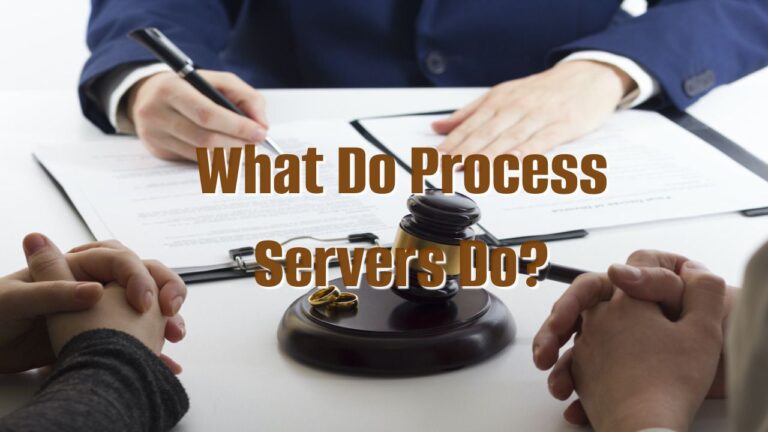Process servers play a crucial role in the legal system by ensuring that due process is served and the rights of individuals are upheld. They are responsible for delivering legal documents to individuals involved in court cases, informing them of their rights and obligations. This essential function ensures that all parties have proper notice of legal actions, allowing for a fair and just legal process to take place. In this article, we will delve into the responsibilities and significance of process servers, examining their role in the legal system.
Serving Legal Documents

One of the primary responsibilities of a process server is to serve legal documents to the parties involved in a lawsuit. These documents can include subpoenas, summonses, complaints, writs, and various other court orders. The process server’s duty is to personally deliver these documents to the intended recipients in a manner that complies with the law and legal procedures.
The process of serving legal documents requires great care and attention to detail. Process servers must correctly identify the individual to be served, as providing the documents to the wrong person can lead to complications in legal proceedings. Additionally, they must adhere to the specific laws and regulations governing the process of service in each jurisdiction. Some states may require documents to be served during specific hours or days, while others may have unique requirements for certain types of cases.
Maintaining Proper Documentation

Process servers must maintain detailed and accurate records of their service attempts. This documentation is essential to demonstrate that the recipient was properly notified of the legal proceedings. In cases where the recipient attempts to avoid being served or disputes having received the documents, the process server’s thorough documentation becomes crucial evidence in court.
To maintain proper documentation, process servers typically write reports detailing their attempts to serve the documents. They may also take photographs or videos as proof of the service. This evidence ensures that the legal process moves forward without unnecessary delays and challenges.
Adhering to Ethical and Legal Standards
Process serving requires adherence to strict ethical and legal standards. Process servers must act professionally, impartially, and without bias while carrying out their duties. They should not engage in any behavior that could be considered harassment or intimidation during the process of service.
Moreover, process servers must be knowledgeable about the laws and regulations related to process serving in their respective jurisdictions. Staying up-to-date with any changes in these laws is essential to carry out their duties effectively and avoid any legal complications.
In conclusion, process servers are essential players in the legal system, ensuring that the principles of due process are upheld and that all parties involved in a legal case have proper notice of the proceedings. Their role in serving legal documents responsibly and accurately contributes to a fair and just legal process. By adhering to ethical and legal standards and maintaining comprehensive documentation, process servers play a vital role in maintaining the integrity of the legal system.
